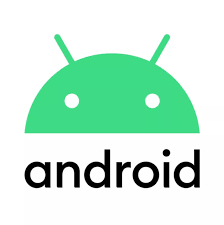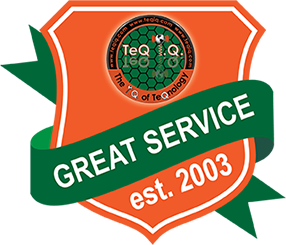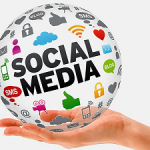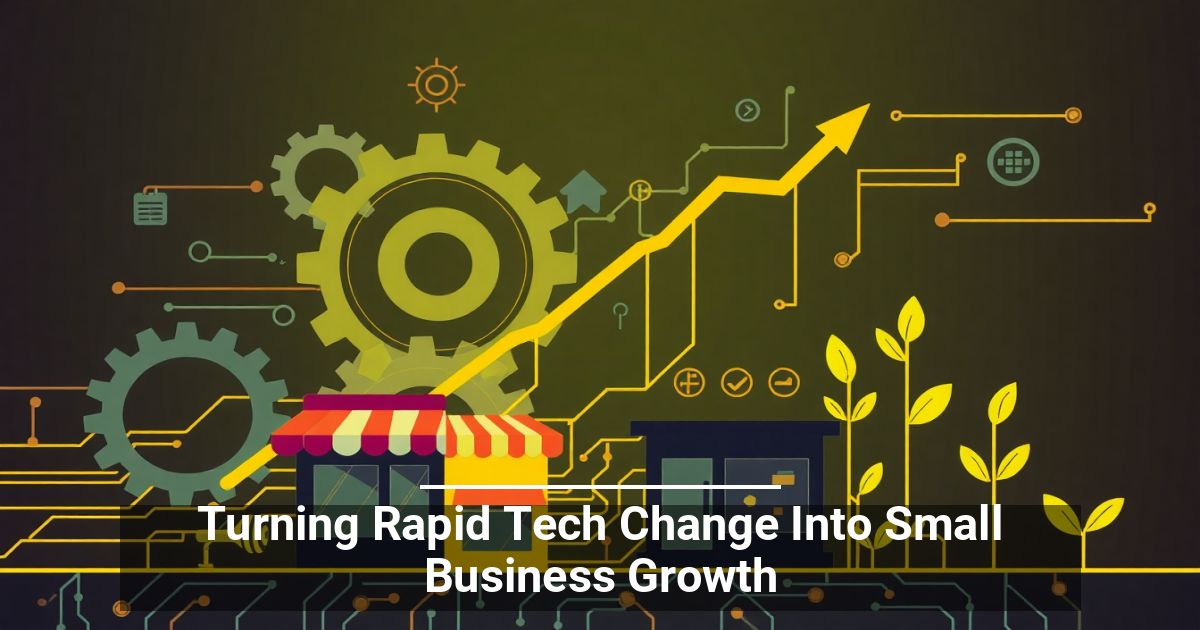
"Share this Info and Help a Friend"

NEW: AI Mobile and Desk Phone Service!
"AI Summary & Call Recording Transcribed on your Mobile/Desk Phone and PC"
- Perfect: You're Not Near their Desk Phone when the Phone Rings.
- Perfect: You Don't want to Call or Text from your Personal Cellphone Number.
- Perfect: You Don't want Calls on your Cellphone After Hours and Go to Voicemail.
- Perfect: Take Notes on all Calls with AI Assistant and Call Recording Transcription.
Have your All Phone Numbers Make Calls/SMS/MMS on your Mobile/Desk Phone/PC.
https://www.teqiq.com/phone
YouTube Video "Google Making an Android PC"
The holy grail of personal computing has always been a single, seamless experience that follows you from your pocket to your desk. For decades, this dream has been a graveyard of ambitious failures.
Now, in the fall of 2025, the whispers are growing louder: In partnership with Qualcomm, Google is making a serious play to bring Android-based PCs to the mainstream. Google’s effort isn’t just another Chromebook; it’s a full-fledged effort to scale the world’s dominant mobile operating system into the laptop form factor.
Google’s Android PC initiative represents a direct assault on the traditional Windows PC market and a strategic challenge to Apple’s carefully segregated ecosystem. However, to succeed where others have so spectacularly failed, Google must learn from the ghost of its most notable predecessor: Microsoft’s Windows 8. Google’s strategy is different — scaling up from the phone rather than down from the desktop — but the potential pitfalls, especially in marketing, look eerily familiar.
The Ghost of Windows 8: Why the PC-First Model Failed
To understand why Google’s new venture has a fighting chance, one must first diagnose the fatal flaws of Microsoft’s attempt at a unified OS with Windows 8 and the Windows Phone.
Microsoft’s strategy was to take the dominant desktop OS, Windows, and shrink it to fit on a phone, while simultaneously forcing its touch-centric “Metro” interface onto a billion mouse-and-keyboard users. It was a bold, top-down strategy that backfired for two critical reasons.
First and foremost was the catastrophic “app gap.” An operating system is only as good as its software library. Developers for mobile were overwhelmingly focused on iOS and Android, and they had little incentive to rebuild their apps for the sliver of the market using Windows Phone.
The platform became a wasteland of missing apps — no Snapchat, no native Gmail, and a constant stream of major services pulling their support. Without the apps people used every day, the hardware was irrelevant.
Second was the jarring user experience. The Metro UI, with its live tiles, was actually quite innovative for a phone. However, on a 27-inch desktop monitor operated with a mouse, it was an inefficient and confusing mess that alienated a generation of Windows power users.
Microsoft attempted to build a single OS that was a master of two worlds, but ended up being a jack of all trades and a master of none. The failure of the Windows Phone was a brutal lesson that you cannot force a desktop-first paradigm into a mobile-first world.
Smartphone-Up Strategy: A More Natural Evolution
Google’s approach is the inverse of Microsoft’s, and that is its greatest strength. Instead of shrinking a desktop OS down, it is scaling a mature, app-rich mobile OS up.
Google’s smartphone-first strategy holds a fundamental advantage: It already has absolute victory in the app war. The Google Play Store contains virtually every application and service a consumer could want. The challenge is not attracting developers from scratch but instead encouraging them to optimize their existing Android apps for a larger, landscape-oriented screen with keyboard and mouse input — a far simpler task.
Furthermore, the user base is already trained. Billions of people are intimately familiar with Android’s navigation, notification system, and settings menus. There is no steep learning curve. An Android PC would feel like a natural, more powerful extension of the device they already use for hours every day. That familiarity with Android creates a powerful, low-friction pathway for adoption that Microsoft never had.
Google’s Marketing Blind Spot
For all its engineering prowess, Google’s history is littered with the corpses of brilliantly engineered products that were crippled by inept marketing and a confusing brand message: Google+, Stadia, Allo, and the convoluted early branding of its Pixel phones. The list is long. Google’s marketing problem is a persistent blind spot. It often fails to tell a simple, compelling story about why a consumer should choose its product.
The marketing challenge is where the parallel to Microsoft’s failure becomes alarming. Microsoft never articulated a clear, compelling reason for consumers to abandon their iPhones or Android devices for a Windows Phone. Google now faces the same challenge. Why should a consumer buy an Android PC when they can get a perfectly good Windows PC for the same price or a simpler Chromebook for half of that?
Without a massive, clear, and sustained marketing campaign that highlights a unique value proposition — perhaps seamless app continuity with your phone, unlike anything else — these devices could easily get lost in a crowded market, repeating the mishaps of the past.
A New Form Factor Emerges
If Google can overcome its marketing hurdles, an Android PC could accelerate the inevitable blurring of lines between smartphones and personal computers. The true endgame may not be an “Android PC” at all, but the death of the PC as a separate device. We are nearing the point where the smartphone is the only computer you need — a “primary brain” that docks into various “shells” to suit the context.
Imagine your phone holding all your apps, data, and processing power. At your desk, you place it into a dock connected to a monitor and keyboard, and the UI instantly expands into a full desktop experience. In a hotel, you connect it to a lightweight laptop shell for productivity on the go.
Samsung has been experimenting with this concept for years with its DeX platform, but with Google’s full OS-level backing, it could become the standard. A dockable, smartphone-centered form factor would make the separate, dedicated PC obsolete for a vast majority of users, transforming it from a core device into a mere peripheral for the phone.
Apple’s Risk and Microsoft’s New Threat
The rise of Android PCs as a smartphone-first computing platform exposes a strategic vulnerability for Apple, which maintains three largely separate operating systems — iOS, iPadOS, and macOS — on hardware that increasingly uses the same silicon, resulting in redundant development and creating a less-than-seamless user experience. While this separation allows Apple to sell you an iPhone, an iPad, and a MacBook, it is an inefficiency born of a hardware-centric business model.
Google, whose revenue is driven by advertising and services, doesn’t care what device you use as long as you are logged into its ecosystem. Its ad-driven business model gives Google the freedom to merge its platforms without cannibalizing its core business.
For Microsoft, the threat is more direct. An army of affordable, capable Android PCs powered by efficient Qualcomm chips directly attacks the heart of the Windows laptop market. To mitigate this, Microsoft must ultimately refine its own Windows on Arm experience, ensuring seamless performance and compatibility with legacy apps.
More importantly, it must lean into its core strengths: the deep integration with enterprise and the unparalleled library of powerful, professional software that will not be coming to Android anytime soon. Windows must become the undisputed OS for serious work, ceding the casual consumer market if necessary.
In Closing
Google’s venture into Android PCs with Qualcomm is the most credible attempt yet at creating a unified computing platform. The smartphone-up strategy is fundamentally sound, leveraging an unbeatable app ecosystem and a user base of billions.
However, the project’s success hinges on Google’s ability to do something it has historically struggled with: market a product with clarity, passion, and persistence. If it can, this initiative won’t just create a new category of laptops; it could fundamentally reshape our concept of a “personal computer,” putting immense pressure on both Apple and Microsoft to adapt or risk being rendered obsolete by the tiny computer in everyone’s pocket.
If this tip helps and you would like to donate click on the button. Thanks In Advance.
________________________________________________________________________________________________________
"Fortune Favors, Who Value Time over Money!"
"TeQ I.Q. was the 1st IT Company to Deliver Cloud Solutions since 2003"
Tech issues taking up your Time?
"TeQ I.Q. Makes Your Technology Secure and Protected"
Do you have Tech Frustrations like your Computer, Internet, Phone, Cellphone, Camera, TV, Car?
"We Take Away Your Tech Frustrations and Give You the Free Time You Deserve!"
Call Robert to ask all your Technology questions.
For Free Consultation Call Now Robert Black at (619) 255-4180 or visit our website https://www.teqiq.com/
Chase Bank and Others Trust TeQ I.Q. with their IT and TeQnology so can you!



